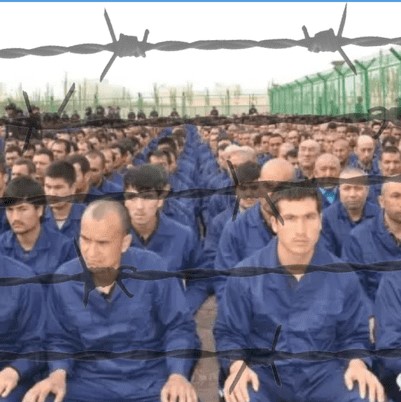In a rare condemnation from the Muslim world of the East Asian nation’s persecution of ethnic Turkic Uyghurs and other Muslims, Turkey called on China to close its network of political “re-education camps” in the Xinjiang Uyghur Autonomous Region.
Turkish Foreign Ministry spokesman Hami Aksoy issued a statement on February 8. He said rights violations in the region have worsened, particularly since April 2017, when authorities began to detain Uyghurs and other Muslim ethnic minorities accused of harbouring “strong religious views” and “politically incorrect” ideas in re-education camps throughout the region.
As reported by Radio Free Asia online, Aksoy said that the international community is increasingly aware of the scale of the camp system, where an estimated 1.1 million people have been held and subjected to what he called “torture and political brainwashing,” while those spared from the camps “are under heavy pressure.”
“The reintroduction of internment camps … and the policy of systematic assimilation against the Uighur Turks carried out by the authorities of China is a great shame for humanity,” the spokesman said, adding that Turkey had expressed its concerns on “the tragedy in the Xinjiang region” to Chinese authorities at all levels.
“On this occasion, we invite the Chinese authorities to respect the fundamental human rights of Uighur Turks and to close the internment camps,” he said.
Aksoy also called on the international community and the Secretary General of the United Nations to “take effective measures in order to bring to an end this human tragedy in Xinjiang.”
Turkey has been largely silent on the situation in the XUAR, despite being home to one of the world’s largest Uyghur exile communities, and Aksoy acknowledged in his statement that Turkish citizens of Uyghur ethnicity are unable to communicate with their relatives back home, while “thousands of children” have been removed from their detained parents there, further impacting families.
The foreign ministry spokesman also said Turkey had learned of the death in prison of prominent Uyghur musician Abdurehim Heyit, who had served two years of an eight-year jail sentence “for one of his songs.”
“This tragedy has further reinforced the reaction of the Turkish public opinion towards serious human rights violations committed in the Xinjiang region,” he said.
“We expect this legitimate response to be taken into account by the Chinese authorities.”
In response, Uyghur exiles praised Turkey. Dolkun Isa, president of the Munich-based World Uyghur Congress, said he hoped Turkey’s statement would set a standard for other Muslim nations to hold China to account for its policies.
“It is a positive development for Turkey to break its silence and condemn China’s crimes against humanity that is taking place in East Turkestan,” he said, using a name preferred by many Uyghurs to refer to their historic homeland.

